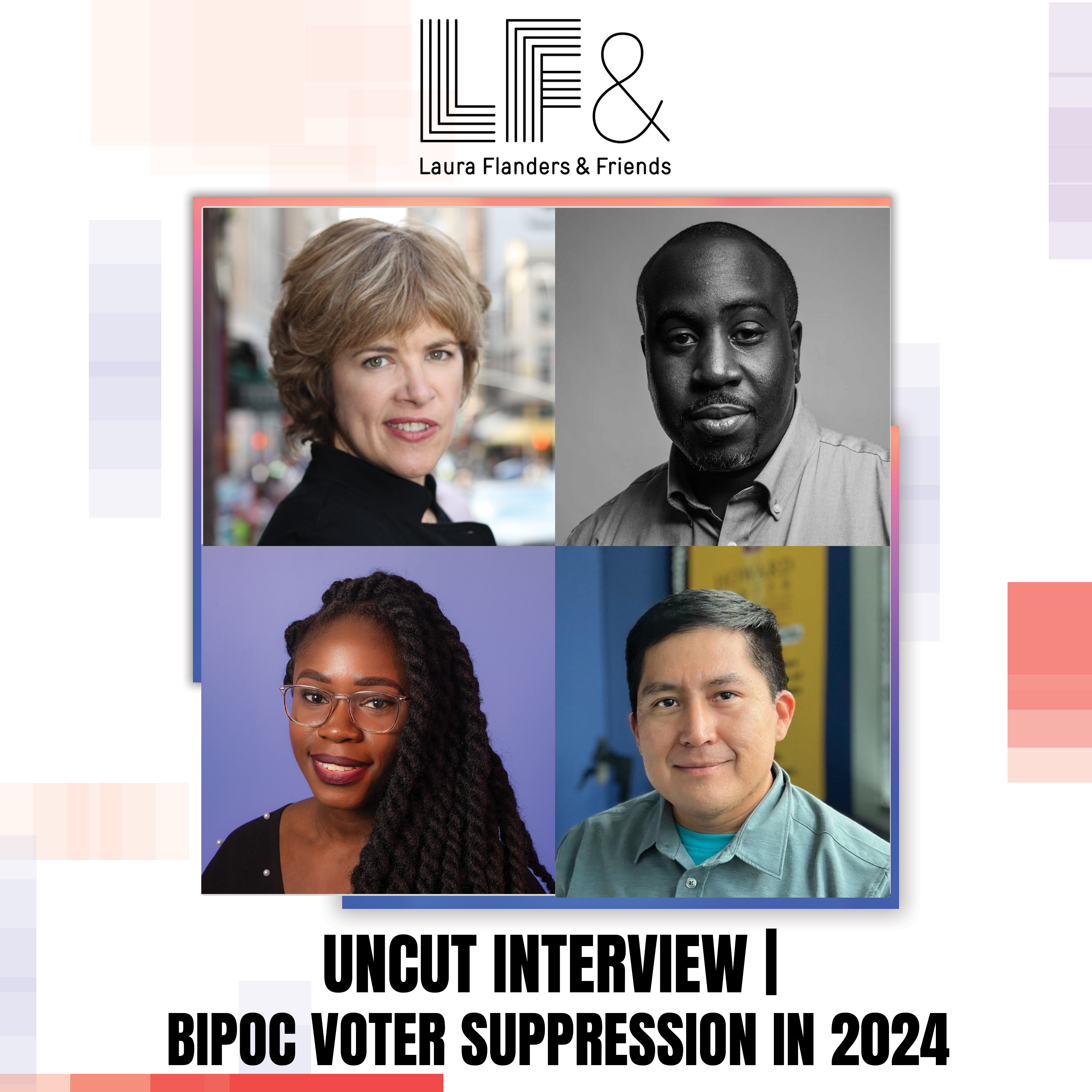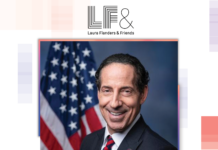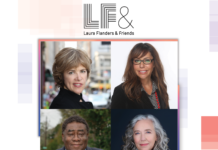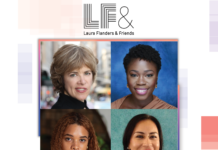For more audio extras, subscribe to Laura Flanders & Friends on your favorite podcast platform.
Just this month, billionaire immigrant and Republican mega donor Elon Musk amplified a post that seemed to suggest that the system would work better if voting was restricted only to “high status men.” Voting should be simple, but we’re seeing more and more barriers — especially for BIPOC voters — this election. From purges of the rolls, to efforts to eliminate same-day voter registration, new voter-ID laws, and vigilante style “election integrity” watchdogs turning up at the polls, voters in many states and tribal nations face serious challenges they’re working hard to overcome. What’s it all mean for the candidates and, more importantly, the millions of eligible voters of color whose ability to cast their vote could ultimately decide the outcome of this election? For this episode of our monthly feature, Meet the BIPOC Press, Laura is joined by co-host Kadia Tubman of the Scripps News broadcast network, along with guests Chenjerai Kumanyika, NYU journalism professor and host of Empire City, a gripping new podcast on the origins of the NY police, and investigative journalist Christopher Lomahquahu of the Howard Center for Investigative Journalism within the Cronkite School at Arizona State University. Together we investigate who gets to vote safely, and who is being excluded from participating in democracy. Will all who want to vote be able to?
“. . . Voter disenfranchisement has been so consistent that we might as well go ahead and call it a principle of American so-called democracy. Even in the constitutional convention, we know that there were efforts to make sure that not everyone can vote.” – Chenjerai Kumanyika
“. . . It wasn’t until a hundred years ago that Native Americans were granted citizenship in this country . . . With the Western Native Voice, Arizona Native Vote, other organizations that you’re finding across these different states, they understand that history but it hasn’t deterred them from looking ahead as far as what they can do to activate those other voters, especially the youth . . .” – Christopher Lomahquahu (Akimel O’odham/Hopi)
“Whenever I report on or hear about election integrity or election security, the phrase ‘safe and secure’ seems to tag along. It’s almost like it’s replacing the term free and fair elections . . .” – Kadia Tubman
Guests
- Chenjerai Kumanyika: Host, Empire City & NYU Professor
- Christopher Lomahquahu (Akimel O’odham/Hopi): Investigative Reporter, ASU Howard Center for Investigative Journalism
- Kadia Tubman: Disinformation Correspondent, Scripps News
Portions of this interview are featured in our episode, “Reporting on Policing at the Polls & BIPOC Voter Suppression in 2024“

















